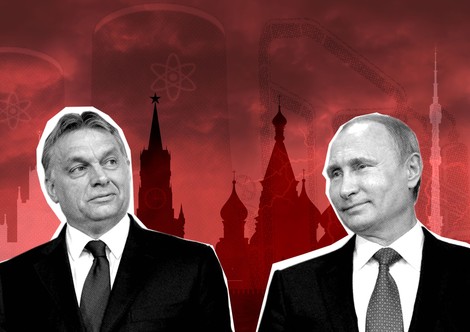Your podcast discovery platform
Curious minds select the most fascinating podcasts from around the world. Discover hand-piqd audio recommendations on your favorite topics.

piqer for: Globalization and politics Global finds
Sezin Öney, originally from Turkey, is based in Budapest and Istanbul. She her journalism career as a foreign news reporter in 1999 and she turned into political analysis as a columnist since 2007. Her interest in her main academic subject area of populism was sparked almost decade ago; and now she focuses specifically on populist leadership, and populism in Turkey and Hungary. She studied international relations, nationalism, international law, Jewish history, comparative politics and discourse analysis across Europe.
The Inside Story Of How Hungary Became Close To Putin
Hungary usually makes the headlines regarding its democratic deficit—including, first and foremost, freedom of media. According to Reporters Without Borders' (RSF) 2017 Press Freedom Index, Hungary features as the 71st country out of 180 countries. As RSF puts it:&
"[Prime Minister] Viktor Orban has steadily tightened his grip on the media since his re-election as Prime Minister in 2010. In October 2016, the Orban regime celebrated its biggest score after the suspension of both the print and online editions of Hungary’s most influential daily newspaper, Nepszabadsag."
While the movement of space for Hungary's mainstream media is shrinking, alternative independent media institutions are struggling to flourish and individual independent journalists keep hanging on—and they do come up with some excellent examples of investigative journalism.
The Hungarian investigative journalism platform "Direkt 36" is such an example. This news website aims to raise its own funding independently and cover stories that focus mostly on corruption and abuse of political power. Direkt 36 prioritizes transparency in its reporting and provides insight to how its journalists compile their investigative work.
In one particular story titled "The Inside Story of How Hungary Became Close to Putin", the focus is over a globally popular topic: foreign liaisons and dealings of the Putin government and Russia.
According to their own framing, reporters András Pethő and András Szabó dig deep into:Intelligence operations, huge business deals, and personal ambitions. These are some of the factors that drive Hungarian prime minister Viktor Orbán in pulling his country closer to Russia.
Their investigative report is detailed, meticulous and provides an insider's look at the Hungarian power circles in politics and beyond. Overall, this is an interesting journalistic work, especially coming from a country where media freedoms are being increasingly hindered and the limits of freedom of expression is shrinking.
Stay up to date – with a newsletter from your channel on Globalization and politics.
